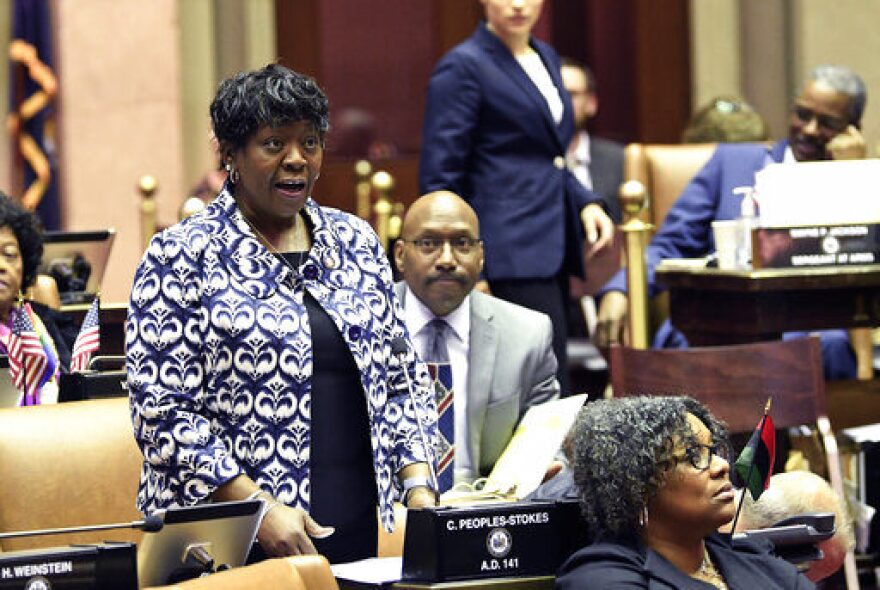ALBANY, NY (WSKG) - The New York State legislature was busy at work on Sunday, passing bills to try to make the midnight budget deadline. The spending plan represents a compromise where not everyone is completely happy.
The $175.5 billion dollar spending plan includes more money for schools, though not quite as much as the legislature had hoped for. There will be a $620 million dollar increase in what’s known as foundation aid, with a larger percentage directed to poorer schools. It brings the total school aid budget to nearly $28 billion dollars.
The budget also restores $550 million dollars to Medicaid programs, initially cut by Governor Andrew Cuomo, in his original budget, but restored in the governor’s 30 days amendments to the spending plan.
To help pay for those items, new taxes will be imposed on Internet sales, and prescription opioid drugs. Two to three upstate prisons will be closed, the locations to be determined later.
The temporary two percent per year property tax cap will be made permanent.
New York will also be among the first states to ban single use plastic bags. Senator Todd Kaminsky, the sponsor of the measure, spoke on the Senate floor.
“Plastic is really bad for the environment,” said Kaminsky, who say the billions of non-biodegradable bags end up on streets , beaches and in the stomachs of marine animals.
Counties will have the option of also charging a 5 cents per bag fee on paper bags. If counties opt in, they can keep some of the money, but they would have to provide bags for free to low income residents.
The budget will also include criminal justice reforms, with a partial end to cash bail for misdemeanors and non violent felonies. It would also change the discovery rules so that defendants can find out earlier what evidence a prosecutor has against them. And the law will now guarantee a speedy trial for defendants, with misdemeanors to be resolved in 90 days and felonies within 180 days.
Khalil Cumberbatch, is a former inmate who now works at the Fortune Society, a group that helps former prisoners reenter society. He was pardoned by Cuomo for a robbery he committed when he was a teenager. He says the changes will make a difference in many peolpe’s lives.
“It’s going to be huge,” said Cumberbatch. “For not only people directly impacted, caught up in the criminal justice system, but it’s gong mean a huge amount to their families.”
To help fix New York City’s mass transit system, the nation’s first congestion pricing plan will be implemented in parts of Manhattan. And there will be a new tax, known as the mansion tax, on the sale of luxury homes worth $25 million dollars or more, as well as an additional real estate transfer tax on luxury homes.
The budget also creates a commission to study whether New York should adopt a public finance system for statewide elections.
Governor Cuomo had pushed for the issue, and Democrats who lead the Senate were receptive. But Assembly Democrats had reservations.
Government reform advocates, including Lawrence Norden of NYU’s Brennan Center, says that falls short.
“I don’t see the need for a study commission,” said Norden, who said it would be a “missed opportunity and a failure”.
Some items did not, in the end, make it into the state budget, including a proposal to legalize recreational marijuana for adults. Governor Cuomo says there are still a lot of unresolved questions, including who receives the licenses to produce and distribute the product , what level of revenues to set, and whether the taxes would go to a reparation fund for communities adversely effected by the decades long prohibition.
“In concept we have agreement,” said Cuomo. “But that is all about the devil is in the details.”
Cuomo says he hopes to finalize a plan on that and many other items, in the second half of the legislative session.

